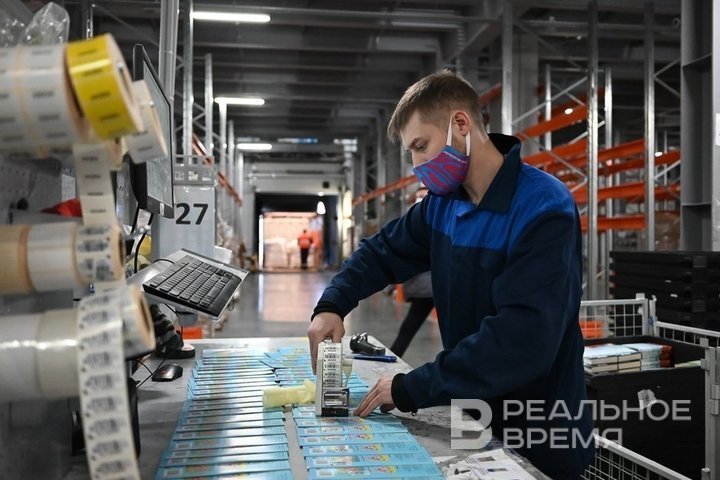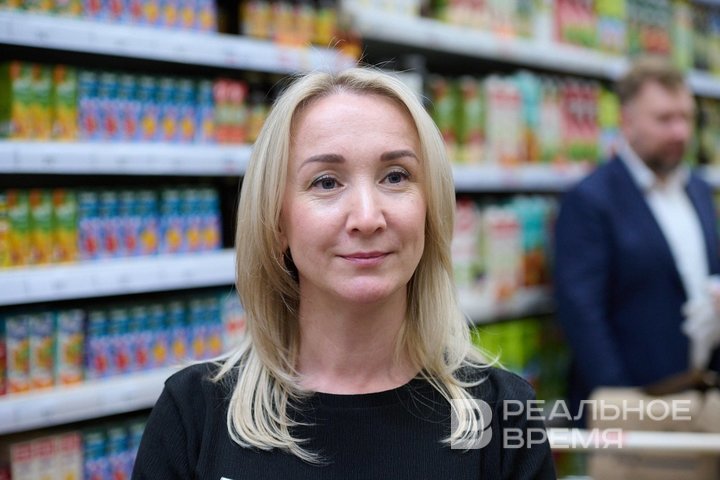Tatarstan residents respond to part-time job offers 31% more often
The trend for temporary part-time work is growing and expanding, with companies seeking one-time contractors, while workers are eager for flexible schedules and quick payments

Three key sectors for part-time work: retail, logistics, and e-commerce
Russia continues to record an unprecedentedly low unemployment rate, despite a slight economic slowdown: 2.2% in May 2025. At the same time, according to Avito Rabota, job seeker activity is increasing. In the first half of 2025, it rose by 12% year-on-year. This was reported by Sergey Yaskin, director of the Avito Podrabotka service.
“However, companies still lack specialists in mass-market professions. According to our surveys, almost 80% of companies state that there is a shortage of workers,” the expert noted.
In the second quarter of 2025, 4 million job listings were posted on Avito, many of them related to unskilled labour: 4.7% for general labourers, 3.1% for order pickers, 3.1% for loaders, 3% for packers, and so on.
The three key industries especially “hungry” for staff are retail, warehousing and logistics, and e-commerce. In light of this, many companies are happy to hire people for temporary part-time jobs. Temporary employment meets the needs of both sides: on one hand, many Russians are not ready to commit to full-time work, but are willing to take occasional shifts. These include, for example, students, mothers on maternity leave, and retirees. On the other hand, companies use one-time contractors to meet demand during peak periods.
In the Volga region, an average of 22% of total income comes from temporary earnings
In 2024, according to data provided by Avito, nearly 70% of large companies employed temporary staff. Of the remaining 30%, the majority planned to adopt this approach in 2025. Most often, companies work with self-employed individuals — this allows even short-term employment relationships to be formalised legally.
“One of the key drivers of platform economy growth in Russia is self-employment. At present, nearly 14 million self-employed individuals are registered in the country. For the state, this has become a way to bring transparency to the ‘grey’ labour market that had formed in certain sectors. For the worker, it allows easy entry into new types of activity,” explains Sergey Yaskin.
In the Volga Federal District, according to Avito, 49% of the platform’s users used part-time work at least once over the past year as an additional source of income. Of the remaining users, one third considered doing so. On average, 22% of total income in the Volga region comes from temporary earnings. This indicates that a significant and established trend has taken shape in the Volga Federal District, including in Tatarstan. In our republic, the number of responses to part-time job listings has grown by 31% over the year — higher than the national average. The most favourable sectors for part-time work in the region are retail, warehousing, trade, and delivery.

Flexible schedules, quick payments, and proximity to home are the main criteria for choosing part-time work
Seasonality, as Sergey Yaskin explains, plays a major role: in Tatarstan, students and schoolchildren are willing to take on part-time jobs in summer, and businesses also generate demand for specific scenarios — such as seasonal work in agriculture, retail, and so on. Seasonality is a significant factor in balancing labour supply and demand. 41% of residents in the Volga Federal District have taken up part-time work during the summer at least once, while another 27% say they would like to find a short-term job for the summer months. 29% of respondents mention freelance work — such as design, programming, or copywriting — as a convenient form of part-time employment. 20% take agricultural jobs, 17% work as cashiers, pick-up point staff, or order pickers in retail, and another 17% take up work as couriers or taxi drivers. 14% join the HoReCa sector.
According to surveys conducted by the platform, the top three criteria for choosing a part-time job are flexible hours, quick payment (many services pay within 24 hours), and proximity to home to avoid spending time commuting. Irina Shirshova, head of recruitment at the Auchan hypermarket chain, explains:
“We have noticed among our employees that flexible schedules are currently in demand. Twenty-six percent of Auchan’s employees in Russia work either on flexible schedules, part-time contracts, or as external part-timers. Women most often choose part-time contracts — 27% of our female staff work in this format. Looking at age groups, part-time contracts or temporary work are preferred by young people aged 18 to 24. In this category, 29% are aged 55 and older.”

Why companies do this: reducing payroll costs and easing the workload on HR departments
Sergey Yaskin lists three reasons why companies use temporary workers. First, seasonal emergencies, such as the summer holiday period or peak retail demand before holidays. Second, for large organisations, periodically hiring non-staff workers is cheaper than employing permanent staff. Third, 27% of companies say they hire external contractors for one-off jobs to save their HR teams’ resources.
Thus, there are companies in need of temporary hires and workers ready to take on one-off shifts. To “connect” them on a single platform, there are several services in Russia. For example, one of the transactional services for finding temporary work — Avito Podrabotka — has recently been launched in major million-plus cities and presented in Kazan. Through it, users can register as workers, search for shifts that suit them (by time, location, and type of work), and take those shifts. The service is available to Russian citizens.
Taras Miskovets, product director at Avito Podrabotka, explains that during registration, the worker’s documents are verified, assistance is provided to register as self-employed (if necessary), and even to obtain a medical certificate, enabling them to work shifts legally. Ninety-five percent of payments are processed through the service within 24 hours. Various large companies cooperate with the platform through the new service, including, for example, Auchan Retail Russia.
In retail, as Irina Shirshova from the hypermarket chain explains, there is high seasonality. Therefore, Auchan Retail Russia often works with platforms for the external recruitment of temporary and seasonal staff. This allows the company to quickly — on the same day or the next — fill the need for workers in positions that do not require high qualifications.
“Working with such platforms helps us reduce payroll costs, streamline employee onboarding, and ease the burden on our HR staff,” says Irina Shirshova.

As of today, the service has already been launched in Saint Petersburg, Kazan, Rostov-on-Don, Krasnodar, Nizhny Novgorod, and a number of other major Russian cities. The trend for temporary part-time work is in full swing, and more convenient tools are emerging in Russia to ensure the safe and legal execution of such arrangements in the “hot” labour market.